Holding a meeting without barriers in Berlin
Meetings and events that are accessible to wheelchair users and other people with disabilities are increasingly in demand within the event industry. Berlin is playing a leading role when it comes to...
An event that is Accessible and engaging for EVERYONE – regardless of physical or cognitive abilities, beliefs, gender, sexuality or ethnic background. That’s what defines diverse and inclusive events. Discover how to successfully plan an inclusive B2B event here.
The term DE&I (Diversity, Equity and Inclusion) refers to diversity, equity and inclusion. It stands for respectful and fair interaction with people on an equal footing – regardless of their background, gender, sexual orientation, disability or other characteristics.
These values may seem self-evident. Yet even today, many people still face disadvantage or exclusion in their daily lives – triggered by one or more of these characteristics, which continue to pose barriers within our society.
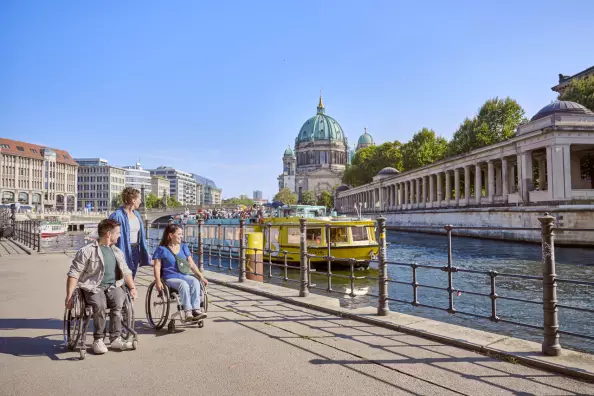
According to a representative 2024 study by IU Internationale Hochschule, 75.1% of young professionals expect companies to take action to promote diversity and inclusion. For many, equal opportunities are a key factor when choosing an employer.
Diversity is also playing an increasingly important role in talent acquisition for German companies. According to the 2023 ifo HR survey, conducted in cooperation with Indeed and Glassdoor, 52% of companies surveyed take a diverse workforce into account when hiring new staff.
Threats to diversity and inclusion
In recent months, many large companies have scaled back their diversity, equity and inclusion programmes. The reasons include political and legal pressures, economic cutbacks or societal pushback.
Many organisations regard DEI programmes as dispensable in times of crisis or fear polarising debates.
Yet numerous studies show that diverse teams are more innovative, resilient and attractive to skilled professionals in the long term. Especially in the business world and the MICE industry – where creativity, collaboration and diverse perspectives are vital – DEI remains a key factor for success.
The same applies to planning B2B events:
Expectations for events continue to rise, not just in terms of technical standards, but increasingly from a societal perspective – such as inclusion, representation and participation.
Accessible and diverse events - more than just a trend
Only a few years ago, sustainable event planning was considered a new trend. Today, it’s part of the standard. And while we can only speculate, much suggests that diversity and inclusion will soon become equally central. With Generation Z joining audiences, expectations are rising – becoming more critical, more questioning and more socially aware.
This is clearly reflected in flagship events such as the Special Olympics 2023 and the Global Disability Summit 2024 in Berlin. These events sent out powerful social signals, made inclusive concepts visible, and demonstrated that diversity and participation are already at the heart of contemporary event design.
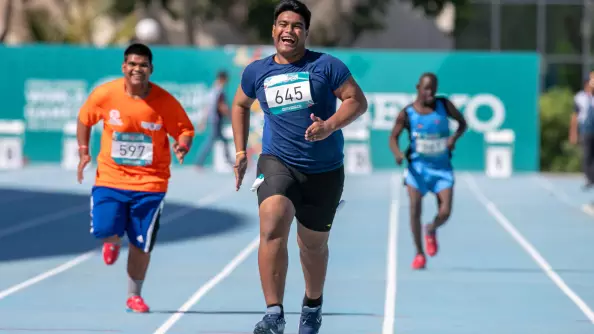
In the event industry too, embracing diversity and inclusion holds tremendous potential.
More inclusive and diverse events open up access to content for everyone involved – whether event planners, participants, crew or even Suppliers. This can significantly enhance event engagement, as a positive atmosphere is created when everyone feels satisfied and heard – even after the event has ended. As a result, DE&I events contribute positively to overall event impact, generating both social and societal value.
But how do you go about planning an inclusive and diverse event? What needs to be considered?
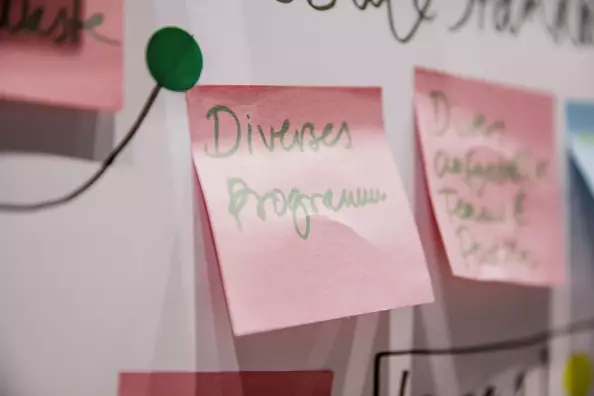
From the very first step, ask your audience what they need to feel completely comfortable at your event.
This gives you a clear picture of the specific measures that should be implemented and enables you to discuss options with your Suppliers (Venue, catering, transport providers).
Do any guests on site require mobility aids or sign language interpreters?
Do you require a companion or personal assistance?
Are there any food intolerances we should be aware of?
Would participants like to include their pronouns on name badges?
Are there any sensitivities to stimuli we should consider (e.g. light, noise, crowds)?
Are there any medical or health-related conditions we should take into account when planning the event?
These are just a few steps that can have a big impact. In the Meeting Guide Berlin, you’ll find Suppliers who are happy to support you in delivering an inclusive event in Berlin.
For example, G&L Systemhaus specialises in live-streaming your events – in Full HD or 4K, and completely barrier-free thanks to AI-supported technology.
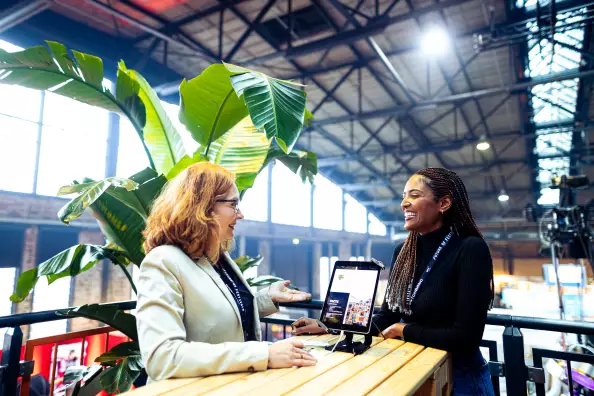
To ensure your information is Accessible to your entire audience, barrier-free communication is essential. Since 2025, it has been mandatory in Germany to offer websites in an Accessible format and in plain language.
Avoid using PDFs, as these formats are not fully compatible with screen readers. To make your information universally accessible, opt for barrier-free HTML pages or editable formats such as Word documents, which support structured headings, alternative text and Accessible tables.
When printing information materials, be sure to use a sans-serif font in a sufficiently large size, as recommended by the German Federation of the Blind and Partially Sighted. And in line with Sustainable Berlin values, print only as much as is truly needed.
When promoting your events, using imagery that reflects as much of society as possible is a powerful approach. For example, choose visuals that represent diverse body types, age groups, ethnicities and disabilities.
Also, make use of gender‑neutral language. This helps ensure your target audience feels seen, represented and genuinely addressed by your event.
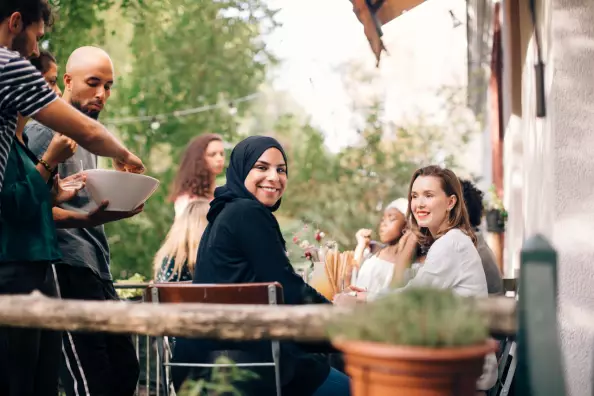
When planning an inclusive event, the choice of an Accessible Venue is paramount. And by accessibility, we don’t just mean installing a ramp. True accessibility encompasses much more.
Every pathway should be sufficiently wide and free from obstacles, enabling wheelchair users and those with limited mobility to move about safely and independently. Similarly, lifts in multi-storey venues, reserved parking close to the entrance, and Accessible toilets accessible to all guests are essential considerations.
Including gender-neutral toilets and complimentary hygiene products further reinforces the inclusive DNA of your event. Such thoughtful touches project openness, respect, and an awareness of diverse needs.
Where relevant, having prayer or quiet reflection rooms available can make all the difference. These additional spaces not only provide comfort but also foster a genuine sense of belonging for every participant.
Ready to explore options? Head to the Meeting Guide Berlin to discover top-tier Accessible Venues throughout Berlin.
What’s more, our accessibility-focused partners also contribute to the "Reisen für Alle" project, ensuring your event aligns with the highest standards of inclusivity.
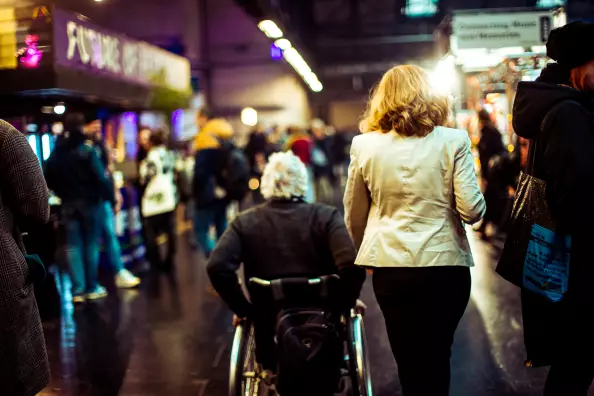
An international event audience brings with it a variety of culturally and religiously influenced dietary habits. When selecting your menu, be sure to include vegan, vegetarian, kosher, halal and gluten-free options.
Non-alcoholic beverages should also be available. Gather information about dietary preferences and intolerances during registration to help make the right choices.
Be mindful of fasting periods and culturally specific mealtimes – such as during Ramadan.
Tip:
Donate any leftover food to organisations or facilities that distribute meals to people in need. Apps and local initiatives offer numerous easy and reliable ways to donate.

perspectives arise from a mix of lived experiences. So when selecting speakers, aim for diversity in gender, cultural background and worldview.
Collaborating with organisations that focus on diversity and inclusion can help you bring inspiring expert voices to your event.
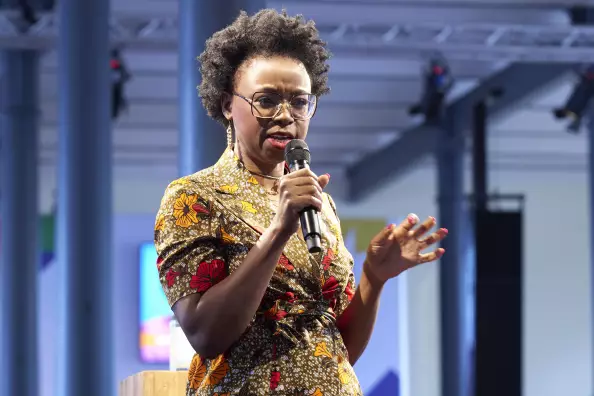
Partner with Suppliers who share your mindset. These could be companies that openly commit to diversity, follow their own Code of Conduct, and support the Charta der Vielfalt.

As you’ve seen, the steps towards greater visibility at events range from simple actions to well-thought-out concepts and holistic strategies.
No matter how you plan your event, even the smallest measures can help people feel seen and heard – particularly those who often experience exclusion in everyday life.
At the same time, hosting a DE&I event enhances your positive reputation as an organisation and demonstrates that you act responsibly and with foresight.
This also contributes to the wider social value of your event by giving space to voices and perspectives that are too often overlooked.
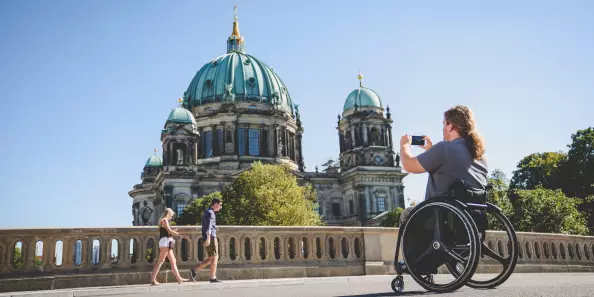
Meetings and events that are accessible to wheelchair users and other people with disabilities are increasingly in demand within the event industry. Berlin is playing a leading role when it comes to...
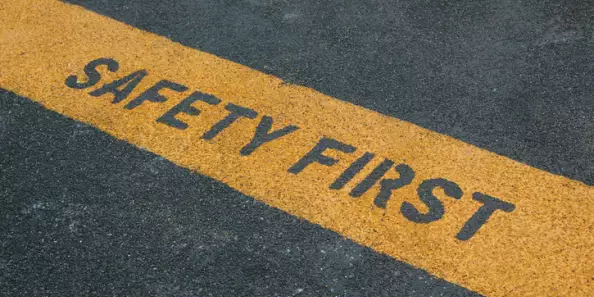
The security landscape for business events such as trade fairs, congresses and conferences has evolved significantly in recent years. This presents new challenges—but also exciting opportunities—for...